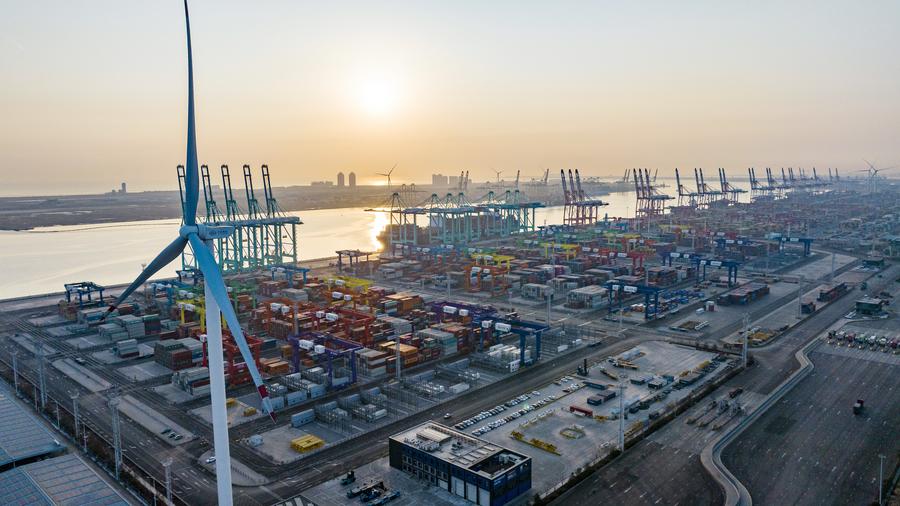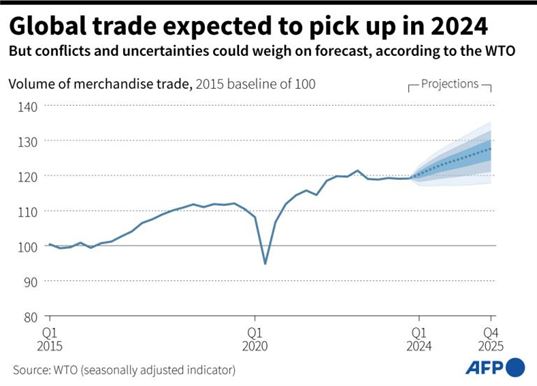
GENEVA - The volume of global trade in merchandise should increase by 2.6 percent this year, the World Trade Organization said in its annual trade statistics and outlook report published on Wednesday.
According to the WTO, the volume of world trade in merchandise fell by 1.2 percent last year, but will increase by 3.3 percent in 2025.
Global trade is expected to pick up gradually this year following a contraction in 2023 that was driven by the lingering effects of high energy prices and inflation, the report said.
Some governments have become more skeptical about the benefits of trade and have taken steps aimed at re-shoring production and shifting trade towards friendly nations.
Ralph Ossa, WTO Chief Economist
Inflationary pressures are expected to further abate this year, allowing real incomes to grow again, thus providing a boost to the consumption of manufactured goods. "A recovery of demand for tradable goods in 2024 is already evident, with indices of new export orders pointing to improving conditions for trade at the start of the year," the report noted.
WTO Director-General Ngozi Okonjo-Iweala said: "We are making progress towards global trade recovery, thanks to resilient supply chains and a solid multilateral trading framework - which are vital for improving livelihoods and welfare."
"It's imperative that we mitigate risks like geopolitical strife and trade fragmentation to maintain economic growth and stability," she added.
The report forecasts that Africa's exports will grow by 5.3 percent this year, faster than any other region. Furthermore, strong import volume growth of 5.6 percent in Asia and 4.4 percent in Africa should help prop up global demand for traded goods in this year.

While the economic impact of the Suez Canal disruptions stemming from the Middle East conflict has so far been relatively limited, some sectors, such as automotive products, fertilizers and retail, have already been affected by delays and freight costs hikes, the report noted.
The report said that geopolitical tensions have affected trade patterns marginally but have not triggered a sustained trend toward de-globalization.
"Some governments have become more skeptical about the benefits of trade and have taken steps aimed at re-shoring production and shifting trade towards friendly nations," WTO Chief Economist Ralph Ossa remarked.
The resilience of trade is also being tested by disruptions on the Panama Canal and the Red Sea, two of the world's main shipping routes, he added.
The report estimates that global GDP growth at market exchange rates will remain mostly stable over the next two years at 2.6 percent in 2024 and 2.7 percent in 2025.


